Libya
Libyans displaced from their homes in the war-torn city of Benghazi have appealed to the government to come to their aid. Housed in government schools, they accuse the government of neglecting them.
Benghazi was the birthplace of the revolution that ousted long-time leader Muammar Gaddafi in 2011. Some of them have been living in this shelter for over a year. But they are jobless and living on handouts that are not forthcoming.
“I was displaced from Benghazi and have now been living in Abu Bakr al-Razi school for about 7 months. There are people that have been here longer, a year and two or three months. So far the state and its government has not given us any tangible assistance. We are Benghazi residents and have been affected (by the war) our homes have been destroyed and our jobs have ended, everything has come to an end, we have nothing left,” Aref al Maghribi, a displaced man said.
Families living in this school compound have tried to make life close to home, but without government support, they say it is becoming difficult to survive by the day.
Fariha Al- Sharif said she hasn’t received any help or support from the state and has little hope of returning home.
“I was displaced from the Souq al-Hout area and I’m now living in the school. We have tried to reach out to the state but they don’t give us any support and don’t consider what we’re going through and don’t take care of our needs. They don’t give us hope that we may return to our homes. There are families here that have been financially, emotionally, psychologically affected, and no one from the state has come to see the conditions under which we and our children are living in these schools.”
Civil society organisations like the Libyan organization for development have been assisting these displaced victims but an official said it is becoming difficult without government assistance.
“No matter how much civil society organisations try, they can’t support and care for all the families displaced in the absence of state and state support. The situation is very difficult right now. The state has not provided subsidies, most of the families in the schools are living in very difficult financial conditions, many below the poverty line,” Hanan al – Shuheibi, an official of the Libyan organization for development said.
The number of displaced families in Benghazi is reported to have reached about 47,000 . By the end of 2015, some 62 schools in Benghazi have been hosting families displaced by the war.
Benghazi itself has seen months of heavy fighting between Islamist militants and military forces allied to the country’s recognised, eastern-based government.
The Internal Displacement Monitoring Centre estimates, there are a total of at least 434,000 displaced people in Libya as of mid 2015, but with so many regions and territories off-limits to NGO staff and aid workers due to the dangerous environment, the numbers are likely to be higher.




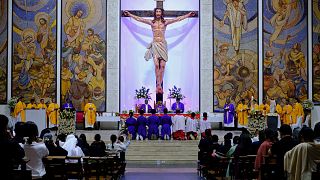

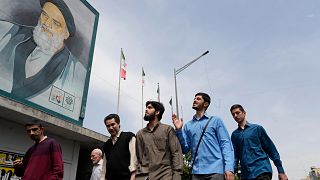
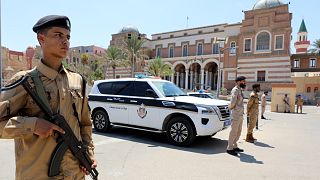

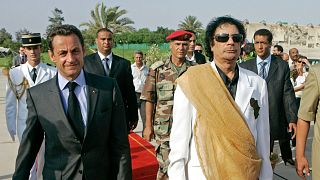
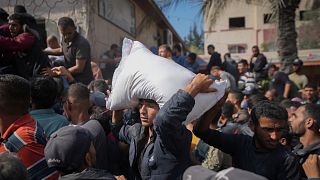


01:00
Displacement crisis deepens: UN warns world at breaking point
02:35
Sudanese Refugee Children Find Hope in Libyan School
01:05
Sudan: fire in Darfur refugee camp destroys 50 houses, no casualties reported
Go to video
Kenya's ambitious plan to turn Kakuma refugee camp into a city
Go to video
France: seven-year sentence and fine suggested for Sarkozy over Libya financing deal
01:04
Sarkozy faces 10 Years in prison in Libyan campaign trial